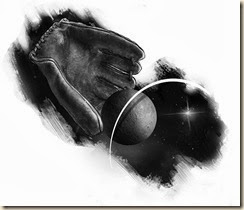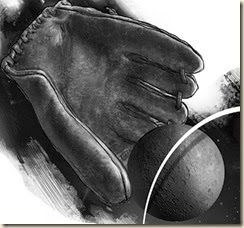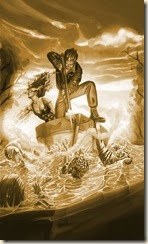There comes a point in your life when you realize that you will never play baseball in the majors. I’m not talking about in high school, or  even college. I’m talking about when you turn 40 and watch a game on TV with your 4-year old and think, “He still has a shot one day, if he wanted to play, but me, not in this lifetime.” You are resigned to watching the game, wishing you could play, but aware that your decades of baseball knowledge, to say nothing of your curveball, will go untapped by the Yankees, Red Sox, Dodgers, or let's face it, even the Royals or Astros.
even college. I’m talking about when you turn 40 and watch a game on TV with your 4-year old and think, “He still has a shot one day, if he wanted to play, but me, not in this lifetime.” You are resigned to watching the game, wishing you could play, but aware that your decades of baseball knowledge, to say nothing of your curveball, will go untapped by the Yankees, Red Sox, Dodgers, or let's face it, even the Royals or Astros.
There comes a point in your life when you realize that chances are pretty good you won’t ever make it to the moon. In my twenties I decided I wanted to be an astronaut. I got as far as earning my private pilot’s license. In the course of educating myself on what it took to be an astronaut, I learned that most of the astronauts NASA selects into its program are over-achievers, even by the standards of mainstream over-achievers. It wouldn’t do to have just a pilot’s license. You also needed 3,000 hours in 20 different types of aircraft. Having a Ph.D in some physical science might improve your chances a little. Two Ph.Ds and a medical degree and now you might be in the running. Throw in competitive rock climbing and HILO parachuting, and you’re probably a shoe-in.
All I had was a pilot’s license.
But the great thing about being a writer, and specifically, a science fiction writer, is that age and decrepitude are inconsequential. My characters can be young. My characters can be experts in their field. They can play baseball, and they can fly to the moon.
It isn’t often that a writer gets to write a pure wish fulfillment story  and see it published. For me, telling a good story is my most important job, and that sometimes means setting aside what I wish would happen, and allowing the narrative to unfold in such a way as to make the best possible story. In the case of “Big Al Shepard” I tried my best to tell a good story, and it turned out to also allow me to play for the Red Sox and fly to the moon.
and see it published. For me, telling a good story is my most important job, and that sometimes means setting aside what I wish would happen, and allowing the narrative to unfold in such a way as to make the best possible story. In the case of “Big Al Shepard” I tried my best to tell a good story, and it turned out to also allow me to play for the Red Sox and fly to the moon.
I spent much of 1998 reading all I could about the Apollo moon missions, and marveling at the fact that men walked on the moon before I was born. (Gene Cernan and Harrison Schmidt, the last two men to walk on the moon, did so when I was 9 months old.) At the same time, I’m a lifelong baseball fan, and thinking about how Alan Shepard swung a golf club on the moon got me thinking about an alternate history in which he might swing a baseball bat instead. A title popped into my head, “Big Al Shepard Plays Baseball on the Moon” and I imagined it as a headline on the New York Times or Washington Post. That was all I had. I sat down to write, and the story emerged mostly as you see it.
I’d never written an alternate history before, and I had more fun writing this story than I’ve had on any previous story. It was wonderful creating an alternate timeline where Apollo 1 doesn’t end in disaster. I wanted one of the original Mercury astronauts to be first on the moon--something that Deke Slayton, in his role as director of crew operations, really wanted as well.
The baseball angle was just as much fun to write. Although I’ve made baseball references in my stories before, I’d never written a scene that involved any sort of sports drama. Writing the scene where Big Al Shepard is attempting to break Joe DiMaggio’s record was some of the most fun I’ve had as a writer. It also took me out of my comfort zone. As a lifelong New York Yankees fan, could I write credibly and positively about the Boston Red Sox? Or New York Mets?
This story was different in one other way. Usually, I have an idea, a “what if,” as well a good idea of how the story will end. Then I just write. In “Big Al Shepard” I had the idea, “What if, in an alternate history, Al Shepard was a major league baseball player before he landed on the moon?” But I had no idea of how it would end. Discovering that ending was a big part of the fun I had with this story.
Finally, I want to give a shout out to my friend, and trusted beta-reader, Ken Liu. Ken read this story in an earlier draft, and identified things that helped make it into a much better story.
-- Jamie Todd Rubin
